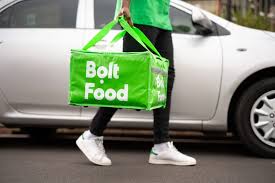Bolt Food leaves Nigeria on December 7 after two years. The company controlled only 5% of the burgeoning Nigerian market before it decided it was leaving. Following “heavy investments” in the market, this was well below expectations.
Femi Adeyemo, Bolt’s Nigerian communications manager, revealed this. After reviewing its Nigerian performance, the corporation reached this conclusion. Bolt operates frugally and efficiently, he noted. Thus, they may make tough choices that strengthen their service ecology. Not continuing Bolt Food in Nigeria is one.
We have heavily invested in these markets over the last three years, offering low commissions to expand selection and incentives to switch to Bolt Food. Unfortunately, these investments in Nigeria have only achieved less than 5% market share, he noted.
Read also: MarketForce shuts down operations in three countries
Nigeria’s Bolt Food
Online food delivery in Nigeria was worth $834.7 million in 2022. Market growth is anticipated to reach $1,719.4 million from 2023 to 2028 at 12.2%.
This may have prompted Bolt Food’s October 2021 e-commerce entry into Nigeria. The COVID-19 epidemic saw the rise of contactless activities. As individuals were unwilling to leave their houses for food, the company decided to deliver it to their doorsteps.
Jumia Foods, Gokada, and O-Foods competed fiercely. After Glovo, Kwik, and Chowdeck entered, the competition became much more complicated. These players came in with more innovation, compelling features, diverse products, and a desire to outperform their predecessors.
The latest recession worsened things. Government measures have eroded buying power and boosted inflation. As buying power fell, food delivery firms competed.
Many Nigerian firms are struggling with low economic indexes. Include Bolt Food, e-hailing, etc. The firm appears to be abandoning its Nigerian food section to focus on its struggling e-hailing business. The company believes this matches its long-term strategy.
This helps our long-term ambition to run sustainable business lines and spend resources where they will have the most impact and provide the best services to our customers and partners. The company told reports it will not reduce E-hailing services.
Food delivery issues
Nigeria’s food delivery sector is growing this year. The increased popularity of fast food and eating out, especially among young people, is to blame. On October 31, 2023, Chowdeck delivered over N1 billion in food, despite celebrating delivering a billion Naira in merchandise since starting in March.
Chowdeck works in Nigeria’s major cities: Lagos, Abuja, Ibadan, and Port Harcourt. It claims 1,300 regular riders earn N55,000 every week. Food service might be a significant industry for Nigerian motorcyclists.
The food delivery firm must manage client standards, food handling, market prices, and logistics. However, as the sector grows, more money will be spent on problem-solving.
Bolt Food may not grow in the future. When asked if the vertical would return, the corporation indicated it was focused on e-hailing. It also indicated that this exodus is exclusively happening in Nigeria and won’t happen in any other African markets.




